Marriott x TED Salon: Meet Zubaida Bai, an advocate for women’s health in India and the developing world
updated the 11 November 2018 à 23:02Meet Zubaida Bai: founder of social enterprise ‘ayzh’ and TED Fellow, who is addressing women’s health issues in the developing world – one kit at a time.
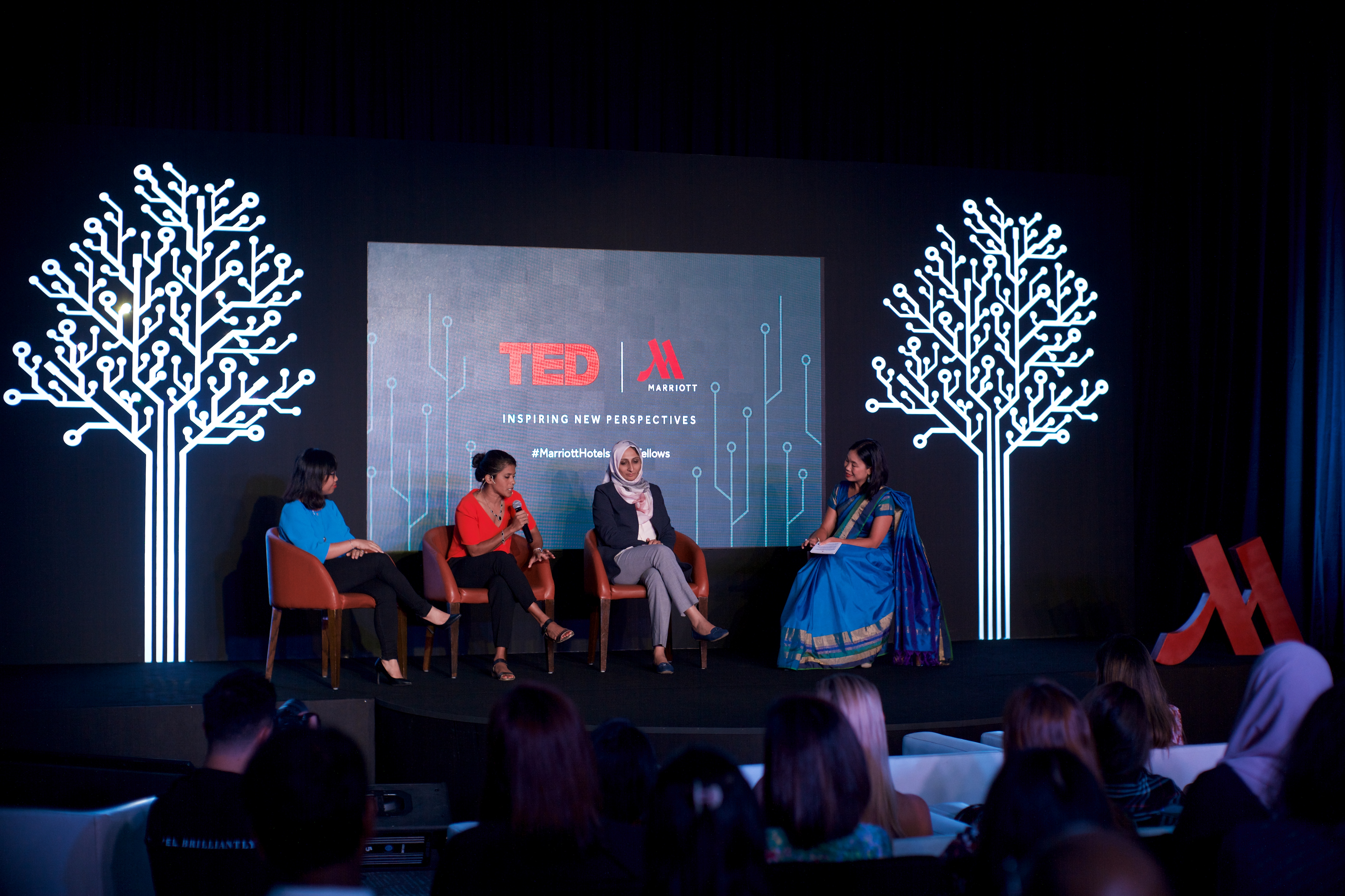
Affordable birth kits for women in rural communities. ‘Mushrooms’ that aid in reducing greenhouse gas emissions. And lastly, pioneer research in the blue whale studies.
What do these have in common?
Well, aside from being brilliant solutions to some very real problems, they’re all the birth child of some pretty kickass Asian women pushing the envelope on innovation in Asia. Early this September, I boarded a four-hour flight to the city of Bangalore (or Bengaluru) in India, to attend the Marriott x TED Salon’s newest panel within Asia-Pacific, called ‘Women in Innovation’.
It couldn’t have been a better-curated panel of speakers: there was Zubaida Bai from India (founder of ‘ayzh’ and women’s health advocate); Asha De Vos from Sri Lanka (marine biologist pioneering blue whale research in the North Indian Ocean); and Trang Tran from Vietnam (social entrepreneur and founder of Fargreen).
Different fields of interest; different women hailing from different corners of APAC; very stimulating discussions.
Held at the Bengaluru Marriott Hotel Whitefield, this marks the second year of Marriott’s partnership with TED. Previous editions include their APAC series last year in Bangkok, with upcoming similar TED Salons in Vancouver, Boston, Cairo, and Athens this year. And Bangalore, often touted as the Silicon Valley of India and the hub of innovation and progressive ideas in the country, was certainly the ripe place for this discussion.
CHATTING WITH TED FELLOW ZUBAIDA BAI, FOUNDER OF AYZH
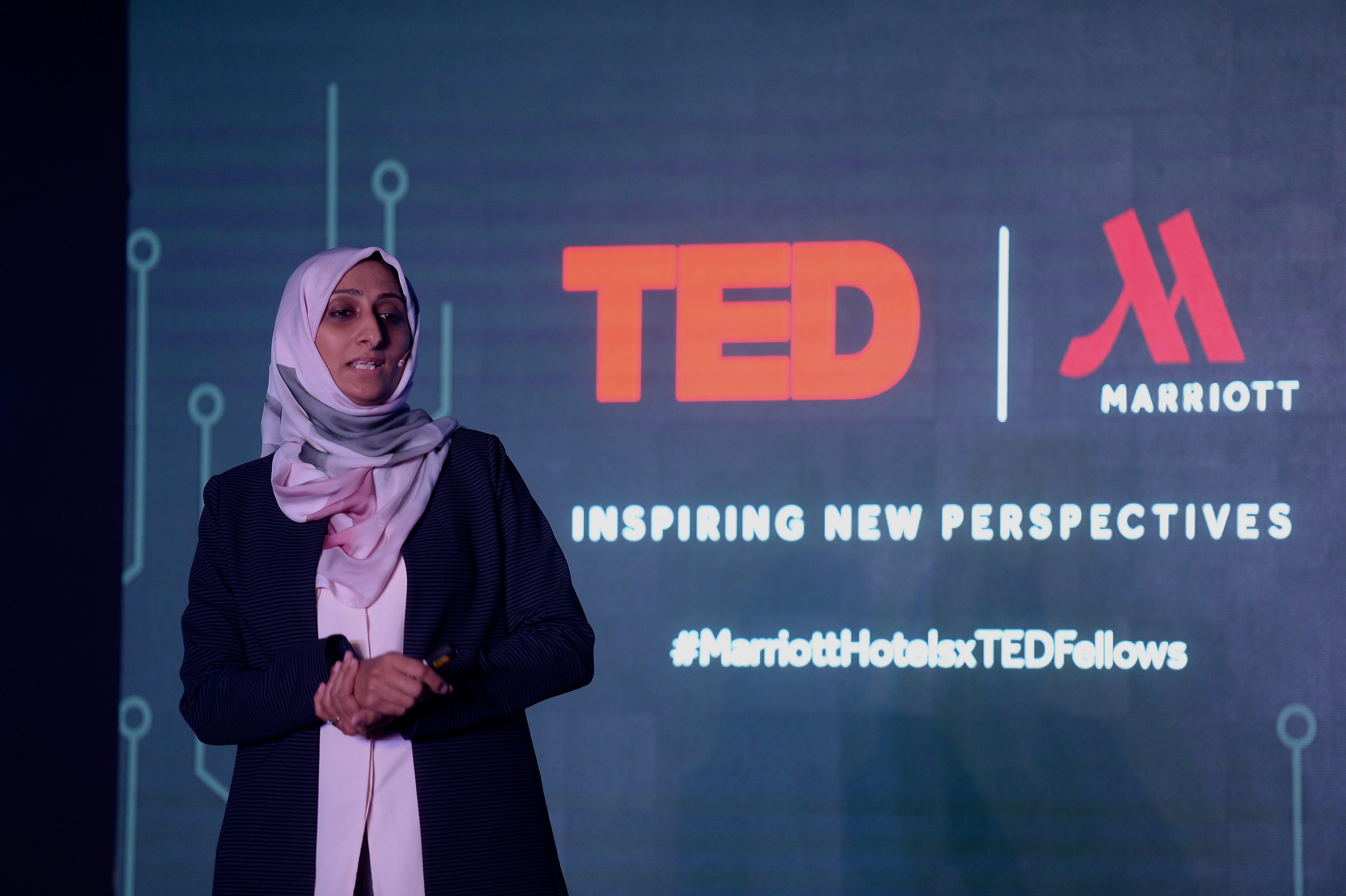
I got the opportunity to speak with Zubaida Bai, founder and CEO of ayzh (pronounced “eyes”), a social enterprise that designs products to improve women’s health across their reproductive lives.
Zubaida is a testimony to how having women at the helm of organisations influencing women’s health can translate to effective results. And Ayzh is the perfect illustration of how the simplest ideas are sometimes the most potent.
Her flagship product at ayzh was ‘janma’, a Clean Birth Kit which costs USD3, that comes designed in pink biodegradable jute bag – which the mothers can, and often do, reuse as a purse. Since first launching in 2012, ayzh has now expanded their products to include kits addressing needs for newborn health, postpartum health, and menstrual health, and expanded across India and also Africa.
I remember first learning about you and your work, through your flagship product ‘janma’, the clean birth kit. And I thought: what a simple, but effective idea. Talk us through that ‘a-ha’ moment that led to the birth of, well, your birth kit.
I was travelling and meeting women’s health organisations and randomly met a midwife through the trip, who was using agricultural tools to give birth to babies. I think that was pretty much my ‘a-ha’ moment – I don’t think I’d decided until months after with what I had wanted to do with what I had seen. I just that I knew I had wanted to do something about what I’d seen. But it was basically a moment where I just knew something was wrong with the system, and it needed to be fixed.
Slightly off-topic – but is there a meaning behind ‘ayzh’?
It’s basically a play on eyes – which is a way to look at women’s health differently. But it also stands for the names of my family members – my sons’, my husband’s and mine. And I think it was just serendipity that we could fit everything in (laughs).
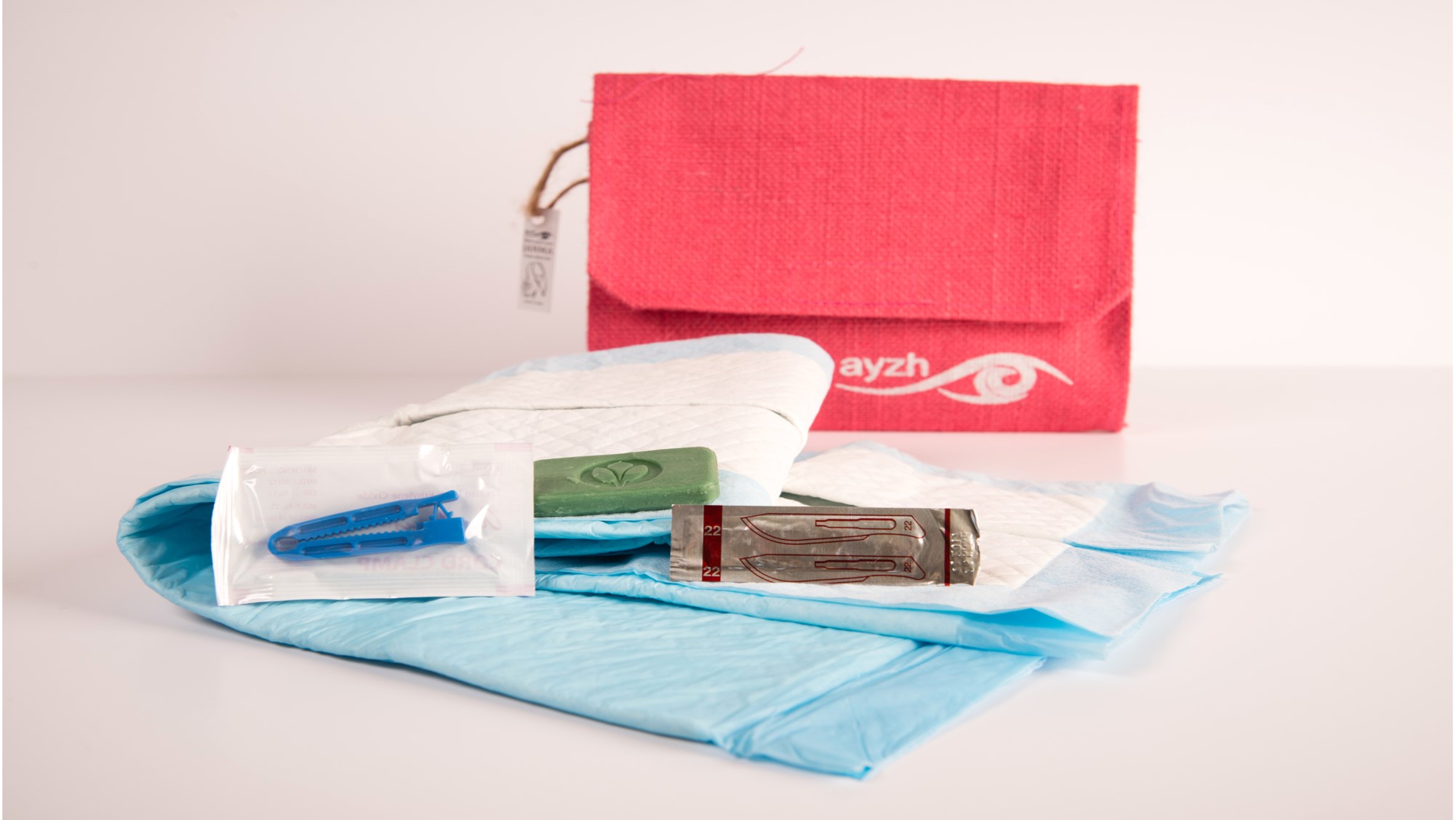
Given what you’d shared about the birthing practices in India’s rural communities, was it challenging introducing ‘janma’ to the average Indian woman living in rural India?
It was definitely a challenge, I have to say. We wanted to sell the product to women – but the two biggest challenges for us was that firstly, the women had no perception of what we’re talking about. And secondly, when we took the product to the healthcare facilities, the doctors weren’t familiar with the products and therefore did not want to use it. We had to change our strategy quickly and start selling our products to gynaecologists and to the medical sector instead, because only then the products would get used.
Has that changed since?
A few years into it, once the product had entered the market, we started creating a bottom-up approach where we began educating the women around about the birth kit… and it wasn’t just not just about our product, but about educating the women about what they needed when they enter their labour wards and what the protocols are when it comes to childbirth. I wouldn’t say we are anywhere near successful yet with this, but it’s slow and steady work… and as long as we’re moving, we’re doing fine.
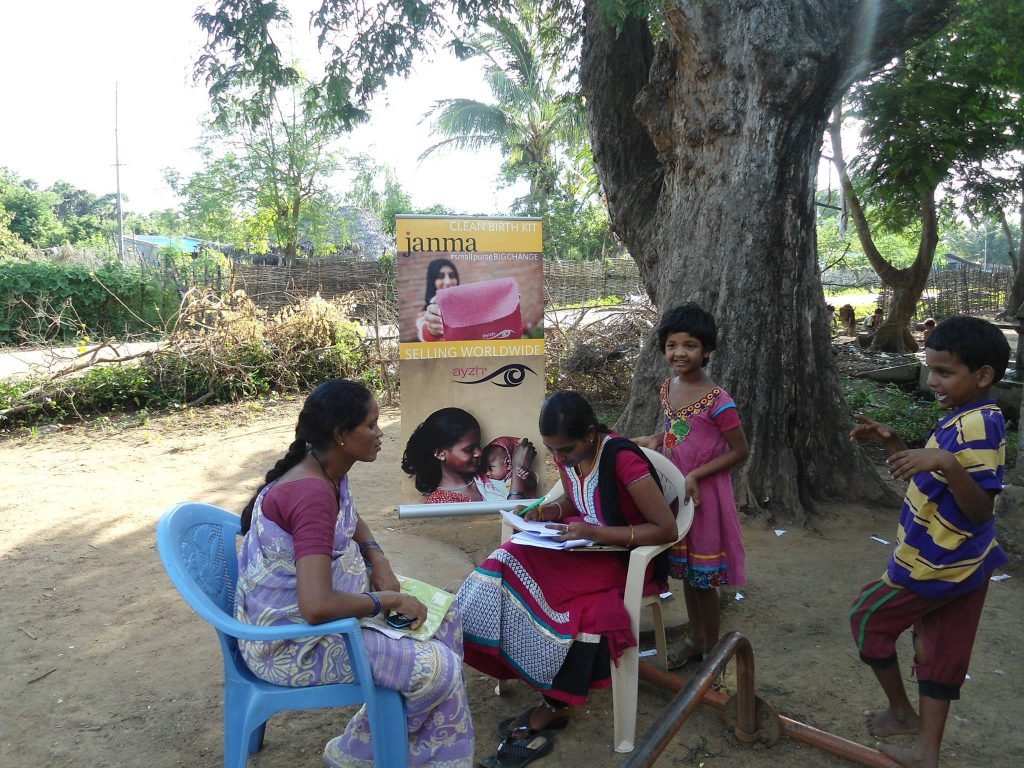
Following the birth kit, you’ve launched shishu (the newborn kit), kanya (menstrual and hygiene kits), among others. What’s next on the pipeline for ayzh?
Definitely the family planning and menopause kits… but we’re still figuring the landscape for postpartum hygiene at the moment. It’s not been as easy as we’d thought it’d be, but once we have that figured out in the next year, family planning is next on the pipeline.
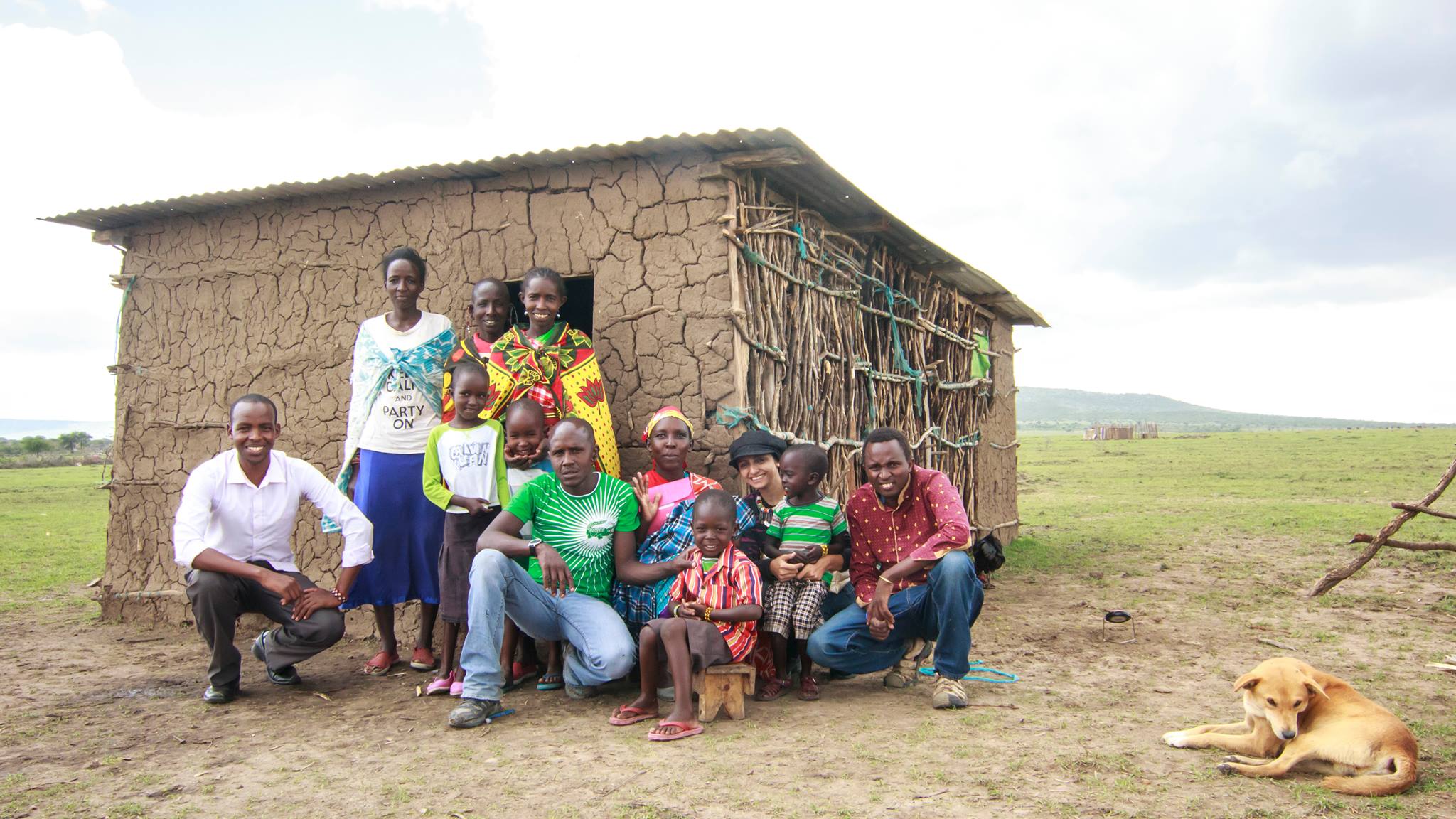
Which city did you first introduce the kit to? And where are your products now available globally?
We first introduced the kit in Chennai, which is where I’m from, so that’s where we started. So we’ve sent our products to 14 countries in the last 7 years. Our operational offices are in India, we have our headquarters in the U.S. and as we speak we are setting up an office in East Africa in Nairobi as well. We export a lot to African countries, so it’s about time.
What do you hope to see change for women in India and globally?
For me, women taking charge of their own health is a change I want to see globally. And I don’t think it’s an issue that only exists in the developing world, it’s very much an issue in developed countries. All I hope to see is that people don’t look at women’s health as a topic that is ignored, but one that is part of your everyday conversation. The next thing I’d like to see is more entrepreneurship more women stepping up to their potential; specifically, women who are mothers.
Any advice for aspiring social entrepreneurs?
My advice to other social entrepreneurs I meet is this: it’s about how you define success. If you fail, that’s fine – failure is really a stepping stone to everything. The mere fact that you saw an issue that needs addressing and took the steps to solve it is great. For me, I took an issue (maternal health) that I deeply believed in and worked on it… if my business fails tomorrow, it’s fine because at least I can say I did something about it.
Marriott Hotels, in partnership for its second-year with TED, hosted an exclusive ‘Women in Innovation’ talk in Bengaluru, India on September 6 at the Bengaluru Marriott Whitefield. This marks the second Marriott x TED Salon within Asia-Pacific, with the first edition held in Bangkok’s Marriott Marquis Queen’s Park.
For more information on the Marriott’s partnership with TED Salon, visit their website.
Sarah Khan
Photos: Marriott Hotels
READ MORE:
Having conquered Everest, they’re now training to be the first Southeast Asian women to summit K2
Breaking Glass Ceilings: 5 Insights from Sue Kyung Lee, P&G Korea’s first female CEO



